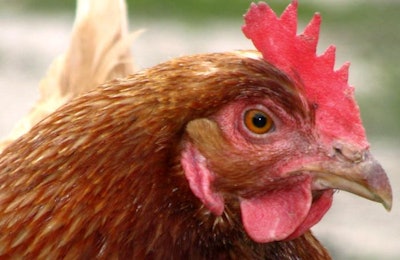
Highly pathogenic avian influenza (HPAI) has been reported for the first time in the Philippines, and the disease has returned to Laos after a brief absence.
Other countries that have officially reported new HPAI outbreaks in poultry are Taiwan, South Africa, Zimbabwe, Italy and Russia.
There has also been one new human case of H7N9 influenza in China.
Asia: HPAI outbreaks in Philippines, Laos, Taiwan
The first ever outbreak of HPAI has been recorded in the Philippines. According to last week’s official report to the World Organisation for Animal Health (OIE), there was one outbreak in San Luis in the province of Pampanga in Central Luzon region, affecting 190,000 birds, more than 36,000 of which died. The source of the infection was unknown, and the virus involved is part of the H5 group.
An estimated 200,000 chickens, ducks, quails, pigeons and roosters in the town were scheduled to be destroyed, reports Philippines Star. The six farms affected will then be disinfected. Poultry shipments from Luzon to other parts of the country have been banned.
Agriculture Secretary, Manuel Piñol, said that there were signs of disease in quail and ducks as long ago as April, according to Coconuts.
Laos has reported the return of HPAI caused by the H5N1 virus variant to the OIE, with five outbreaks that started in early July. Four of the affected farms were in the central Xaysomboun Special Region, and the other was in Champasak, which is in the south and borders Cambodia. More than 14,000 birds – ducks and hens – died from the disease and over 4,000 were destroyed.
Just one month ago, Laos declared the country free of H5N1 and H5N6 HPAI, and the low-pathogenic form of H5N6.
H5N2 HPAI has been detected at two ducks farms in the Taiwanese town of Dacheng in Changhua county. According to the OIE report, all the almost 1,500 birds were destroyed.
Following a series of outbreaks of HPAI that devastated the poultry sector in South Korea and led to the loss of 30 percent of the country’s hens, the government has approved a lifting of import tariffs on eggs.
According to Yonhap, 28,000 tons of shell eggs, hatching eggs and other products from Australia, New Zealand, Thailand and Europe will be imported to keep control of consumer prices for poultry products. Around 98,000 tons of similar products were imported tariff-free into the country up to June of this year.
China: One more human avian flu case
There has been one more confirmed case of avian influenza A (H7N9) in China, according to Hong Kong’s Centre for Health Protection. The latest patient, from Fujian, brings the global total to 1,558 since March of 2013, and Mainland China’s count to 752 since October last year.
Africa: HPAI spreads to South African ostrich farms
Low-pathogenic avian flu virus has been detected in South Africa’s commercial ostrich sector for some time, but now the highly pathogenic H5N8 variant has affected two such farms in Western Cape - the first outbreaks in this province.
According to the OIE report from the national animal health agency, more than 433,000 birds have been lost to the disease in the five most recent outbreaks, which bring the country’s total so far to 16. Two farms in Gauteng and one in Mpumalanga complete the latest cases to be officially reported.
Since June 2017, one farm in the Lanark area of Zimbabwe has been battling to control the H5N8 HPAI virus. Depopulation of a fourth unit at the farm has been carried out after birds became sick and the virus was detected there. According to the OIE report, the disease has not spread outside this one farm complex.
Europe: Italian HPAI outbreaks reach 29
Italy has reported a further five outbreaks of H5N8 HPAI in its poultry sector to the OIE over the last week. Four of these were in fattening turkey flocks in Mantua province in Lombardy, and the other outbreak was in a goose flock in Pavia in the same region. More than 102,000 turkeys and 3,000 geese were affected in these latest outbreaks, which bring the country’s total outbreaks so far this year to 29.
According to the Italian health authority and research organization for animal health and food safety (IZSVe), culling has been completed at these premises, and a preemptive cull of turkeys at an at-risk farm has been scheduled.
There has been a new outbreak of HPAI caused by the H5N8 virus subtype in a backyard flock of 64 birds in Moscow oblast, the Russian veterinary authority has reported to the OIE. The country’s last outbreak was in the Republic of Tatarstan in early May.
A wild swan found dead at a natural park in the English county of Norfolk at the end of July has tested positive for the H5N8 HPAI, the UK government has informed the OIE.
Germany has self-declared freedom from HPAI of the H5N5 and H5N8 subtypes to the OIE following a period without disease outbreaks or detection of the virus.
A similar declaration has been received by the OIE from the veterinary authority of Slovakia.














